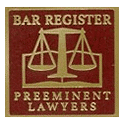General Legal Questions
There are many complexities and nuances of personal injury law and it is impossible to answer every question. However, for purposes of this section, we have selected the more obvious and frequently-asked questions and divided them into these categories:
ANSWER: Regardless of the type of accident, it is almost certain that you need an attorney to receive fair treatment.
Insurance companies are not your friend.
What is good for the insurance company is almost always bad for you. Indeed, at Harrell & Harrell we tell our clients: “If insurance companies did what they are supposed to do and paid fair compensation for injuries, there would be no need for personal injury attorneys.”
The regrettable truth is that insurance companies do not pay fair compensation in a prompt and reasonable fashion regardless of the type of accident. Whether it is a vehicular accident, medical malpractice, nursing home neglect, product liability or otherwise, it is in the insurance company’s best interest to pay as little as possible.
ANSWER: Harrell & Harrell would strongly encourage you to seek an attorney who limits his or her practice to personal injury law before making any decision as to your accident claim.
While there are some fine attorneys who practice personal injury law in addition to other areas of the law, the increasing complexity of our laws has made it more difficult to have expertise in more than one field of practice, such as personal injury litigation.
ANSWER: The first thing you should do is report your accident to your own insurance company.
However, you should not give a statement to your insurance company until after consultation with an attorney.
Such statements are usually recorded and can be used against you later. Politely tell the insurance representative that you will call back at a more convenient time and then contact your attorney.
While insurance representatives may seem sympathetic and have the appearance of trying to be helpful, do not be misled. They are professionals whose primary job is to avoid paying you the money you may deserve. Indeed, their advancement within their profession is in large part dependent upon their not paying claimants. Insurance adjusters do not receive promotions for paying fair and reasonable settlements.
ANSWER: Almost all personal injury attorneys in Florida represent clients on a “contingency fee” basis and do not charge a fee to consult with you about your accident. Put simply, a contingency fee is a percentage of a successful settlement or verdict. If the case is not won, there are no fees or costs owed to the attorney.
The attorney risks his or her time and money (“costs”) and is paid ONLY if the case is won. The Supreme Court of Florida has approved a standard contingency fee agreement used by most attorneys. In brief summary, it provides that your attorney would receive 33 1/3% of any case settled or 40% of any award after a lawsuit is filed and litigation commenced. Also your attorney may advance the “costs” of any claim.
Under rules of the Florida Bar Association, the entire agreement must be reviewed with the client before signature.
ANSWER: “Costs” are matters that must be paid to successfully prosecute a claim. A few examples of costs would include filing fees, investigation fees, copies of medical records or public documents such as accident reports, expert witness fees, and the cost of service of subpoenas and taking depositions. Attorneys advance these costs and recover them only if the case is successful. If the case is unsuccessful, the client owes no costs and the attorney must write off the loss.
Costs can range from a few hundred dollars for a simple claim to hundreds of thousands of dollars for complex litigation. It is essential that costs be expended to successfully maximize the value of a case. As a general rule, the more serious the injury, the more costs must be expended. Accordingly, it is very important that your attorney have the financial resources to advance whatever costs are necessary — even tens of thousands of dollars — to properly prosecute your case. At Harrell & Harrell, we have those necessary financial resources.
ANSWER: Only in very rare cases will the opposing side assist on the payment of medical expenses incurred as a result of their insured’s negligence for several reasons.
First, by not assisting on medical bills, they understand that it is difficult for an injured person to receive the quality care and treatment they need, and that frustration may lead to an early and “cheap” settlement of their claim.
Second, they do not want a fully developed medical case that presents all issues of injury because that would increase the value of a claim. If you do not have PIP (Personal Injury Protection) insurance on your automobile, or if you do not have health insurance that would cover other types of injuries as the result of an accident, it is very difficult to secure the medical care needed. At Harrell & Harrell, in many (but not all) cases we are able to assist in finding doctors who will accept cases in such a situation.
ANSWER: For varied reasons, there is only a very small percentage of doctors who will accept responsibility for the treatment of individuals injured in an accident.
Many doctors do not want to get tied up in what they view to be the cumbersome litigation process. Other doctors receive a substantial amount of income from insurance companies and they do not want to risk that source of revenue. Some doctors feel that the risks of medical complications, and, therefore, medical malpractice, are substantially increased when they are dealing with the complexities associated with an accident injury. Some doctors simply do not like working with attorneys, regardless of the underlying injury.
Based upon our substantial experience, the attorneys at Harrell & Harrell have been able to identify those few highly qualified doctors who are willing to accept responsibility for the medical care of the injured despite the probability that it will involve litigation against the powerful insurance industry.
ANSWER: There is a strict prohibition against an attorney advancing or lending money to a client (regardless of the financial needs of the client) during representation. Indeed, the Florida Bar Association could remove an attorney’s license who advanced a client such monies.
There are some private financial companies who will consider “advancing” or “lending” money against the proceeds of a case; however, such advances are extremely expensive, and at Harrell & Harrell we strongly recommend against considering such a service except in the most extreme cases.
ANSWER: Generally, you do not pay federal income tax on money received from a lump-sum personal injury settlement. As part of that settlement, it is also important that your personal injury attorney does not inadvertently have you sign anything that could change that general rule and make any portion of your recovery taxable income. Of course, it is also necessary to speak to your tax preparer about the specifics of your situation when preparing your taxes.
ANSWER: It depends on the case. Typically, vehicular accident cases are resolved in six to eighteen months. Medical malpractice cases, however, may take two to three years. Sometimes product liability cases take even longer.
It should be remembered that at Harrell & Harrell, we do not get paid until you get paid. Therefore, we are highly motivated to move your case as rapidly as possible.
ANSWER: All settlements or verdicts are considered final and are difficult to reopen.
An injured person is required to sign a full “release” in settlements and a verdict is rendered final by the court. Accordingly, it is very important that the full extent of any injury (as to both physical and psychological components) be fully understood before any settlement is reached or a case is presented to a jury.
For example, in cases involving more serious injuries requiring multiple surgeries and a strong psychological component, such as traumatic stress or emotional problems dealing with disfigurement, the time can be greater. While the client can always determine when he/she wants their case settled, at Harrell & Harrell we always remind our clients that they generally do not have an opportunity to come back and reopen their case if some hidden or latent injury is later revealed.
Accordingly, most injury cases require “balance” between moving the case along as rapidly as possible, and ensuring that the overall result not be jeopardized by reaching settlement so quickly that the full measure of damages is not yet determined, thus depriving our clients of fair compensation.


























